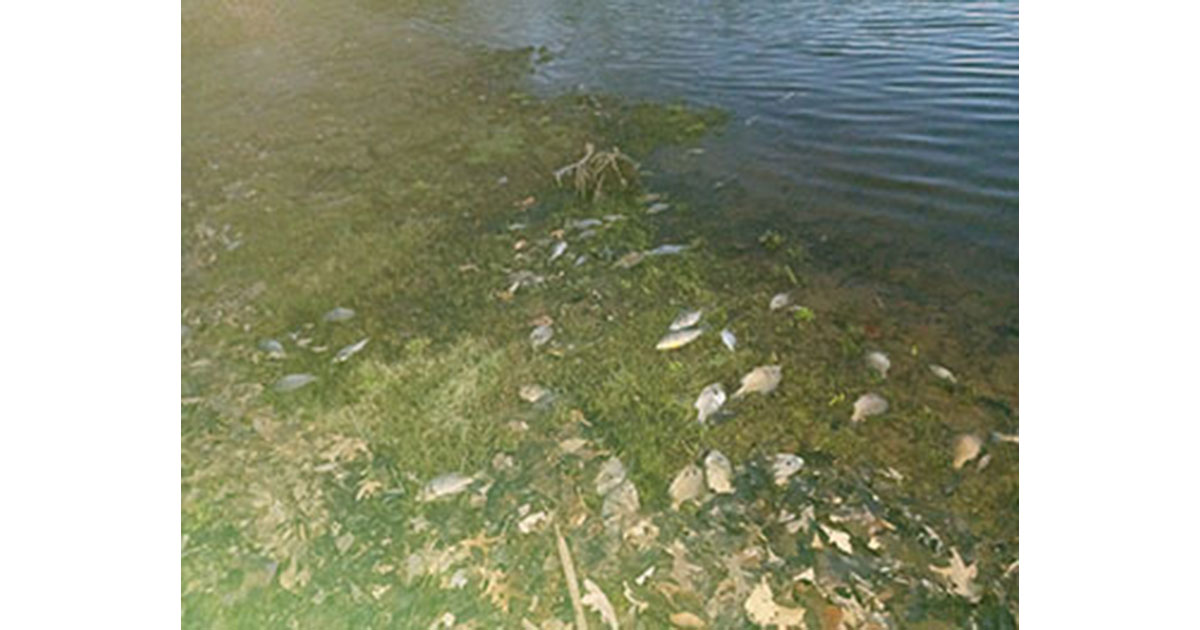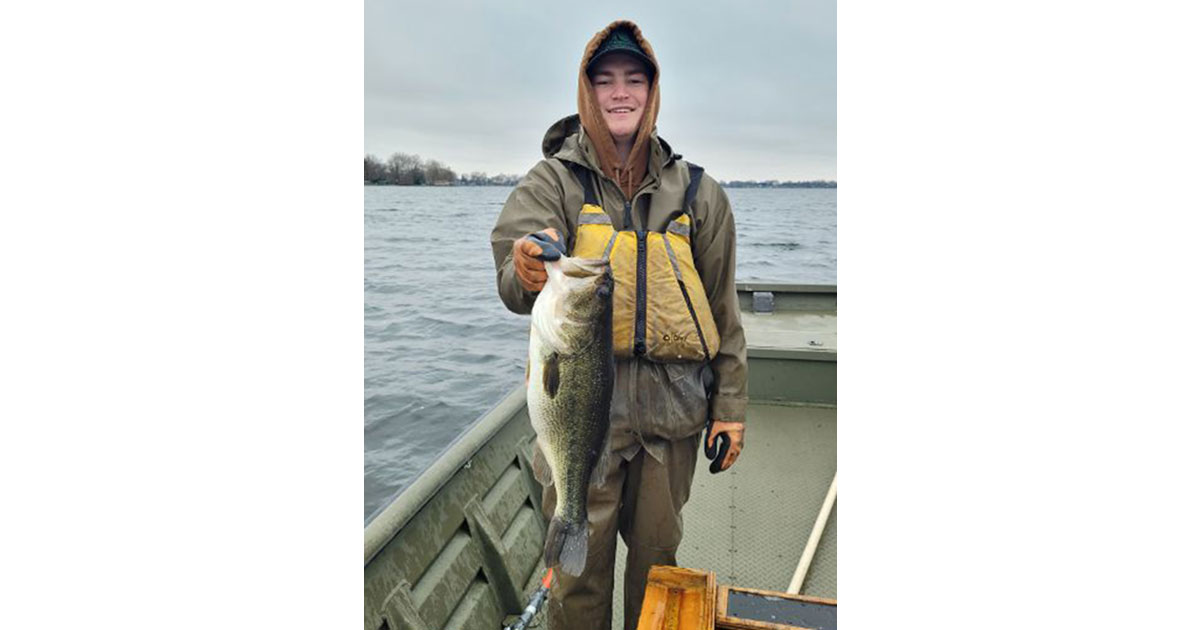- Details
MDNR Report
 Spring Fish Kill
Spring Fish Kill
After ice and snow cover melt on Michigan lakes this spring, it may be more likely for people to discover dead fish or other aquatic animals. While such sights can be startling, the Michigan DNR reminds everyone that it is normal, since winter conditions can cause fish and other creatures such as turtles, frogs, toads, and crayfish to die.
"Winterkill is the most common type of fish kill," said Jeremiah Blaauw, DNR Fisheries Division biologist. "As the season changes, it can be particularly common in shallow lakes, ponds, streams and canals. These fish deaths are localized and typically do not affect the overall health of the fish populations or fishing quality."
Shallow lakes with excess aquatic vegetation and soft bottoms are more prone to this problem, particularly when a deep snowpack reduces sunlight for the plants. Canals in urban areas also are quite susceptible due to the large amounts of nutrient runoff and pollution from roads and lawns and septic systems that flow into these areas, especially from large storm events.
- Details
By Louie Stout
 Assistant District Biologist Avery Feldmeier
Assistant District Biologist Avery Feldmeier
Northwest Indiana’s fish management team is growing with the addition of two new district biologists.
District 1, previously led by Tom Bacula who has been promoted to District Research Biologist, now includes District Biologist Courtney Weldon, who will join the team in the coming days, and Assistant District Biologist Avery Feldmeier, pictured here, who began working the district April 1.
Feldmeier is a 2022 graduate of Lake Superior College with a degree in fisheries and wildlife management. He has since worked in Ohio as a Lake Erie Research Biologist and in Florida where he did ecological research on sea turtles.
The 23-year-old Hudsonville, Mich. native, who lives in LaPorte, Ind., is an avid waterfowl and deer hunter as well as bass and walleye angler.
“I grew up fishing the lakes around my Michigan home so I’m familiar with natural likes like we have here,” he said.
His role will be to help with lake surveys, data entry and oversee summer help. Bacula said Feldmeier will handle communication between the DNR and angler clubs and fishing community in the district.
He already has assisted in the muskie brood stock collection at Webster Lake and a spring survey on Lake of the Woods.
He also will be assessing fish at the Indiana Federation bass tournament weigh-in at Pine and Stone Lakes this weekend.
- Details
IDNR Report
Indiana Conservation Officers are investigating a drowning that occurred yesterday in Indiana’s Little Turkey Lake located in southwestern Steuben County.
At 4:14 p.m., Steuben County Communications received a 911 call advising that a fisherman was in distress in the water.
Upon arrival, responders learned that Thomas Frazie, 76, of Waterloo, was fishing in a boat when, for unknown reasons, he fell in. His fishing partner got the unconscious angler back in the boat; however, lifesaving efforts were unsuccessful, and Frazie was pronounced dead at the scene.
An autopsy was performed today at the Northeast Indiana Forensics Center in Fort Wayne, and the preliminary cause of death was ruled an accidental drowning.
Conservation officers were assisted at the scene by the Steuben County Sheriff’s Department, Ashley Police Department, Indiana State Police, Ashley Fire Department, Steuben County Emergency Medical Services, and Parkview Samaritan Transport.
Conservation officers remind the public to always wear a life jacket when on or near any body of water.
- Details
Skeet Reese Report
IDNR Report
Interested anglers and members of the public are invited to an open meeting April 25 in Columbia City to learn and ask questions about a largemouth bass management project planned for Tri-Lakes.
The chain of lakes is located north of Columbia City and consists of Round, Cedar and Little Cedar.
The multi-year project aims to increase the number of sizable largemouth bass in Tri-Lakes through a series of largemouth bass relocations. The system has an abundance of slow-growing bass between 8-13.5 inches and the plan calls to remove some them to another lake. Biologists believe the project will allow those bass remaining in Tri-Lakes to grow faster with less competition and create more of a balance in the fishery.
The meeting will be held at the Thorncreek Township Fire Department, 821 E 500 N. From 7-8:30 p.m. ET, DNR fisheries biologists will introduce the project, explain its goals, share data and anticipated results, and then answer questions.
“Local anglers have wanted us to improve the size of largemouth bass at Tri-Lakes for several years,” said Tyler Delauder, the district’s fisheries biologist. “We hope this project will allow us to do that.”
To learn more about the project, see wildlife.IN.gov/fishing/largemouth-bass. To learn more about the open meeting, see events.IN.gov/event/tri-lakes-open-meeting.
If you can’t attend the meeting and would like additional information, email D3Fish@dnr.IN.gov.
